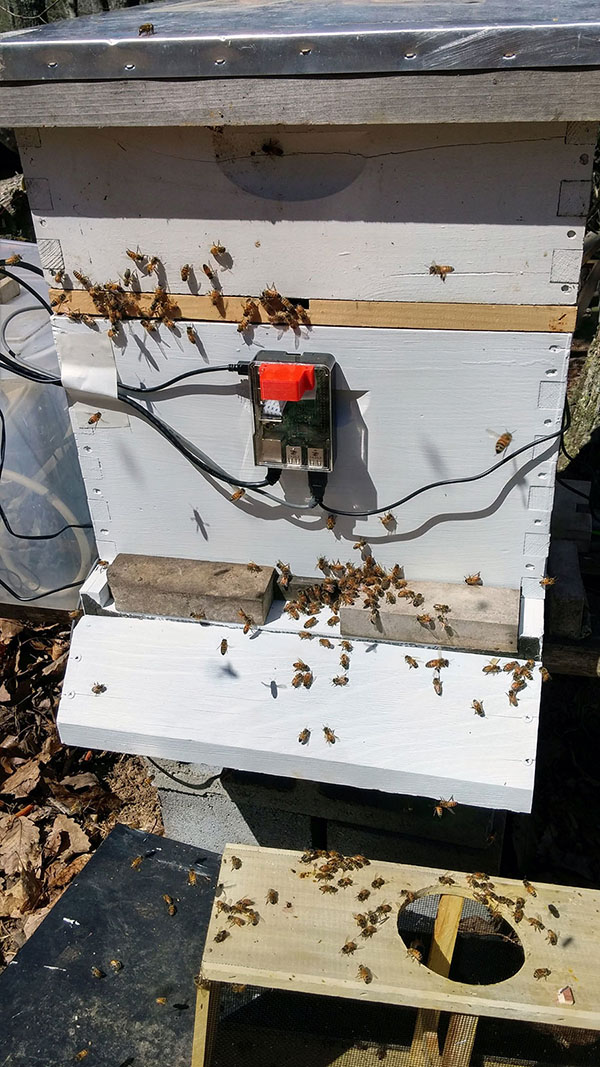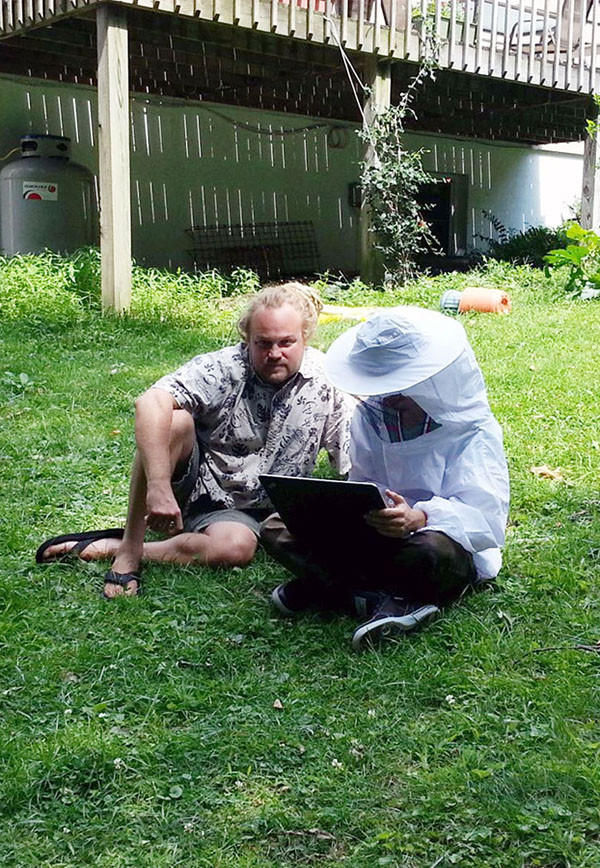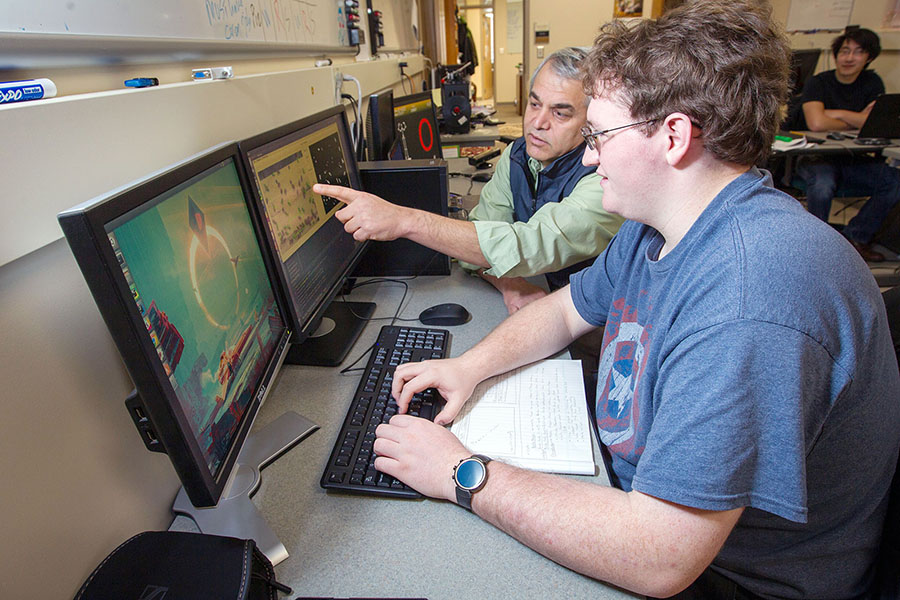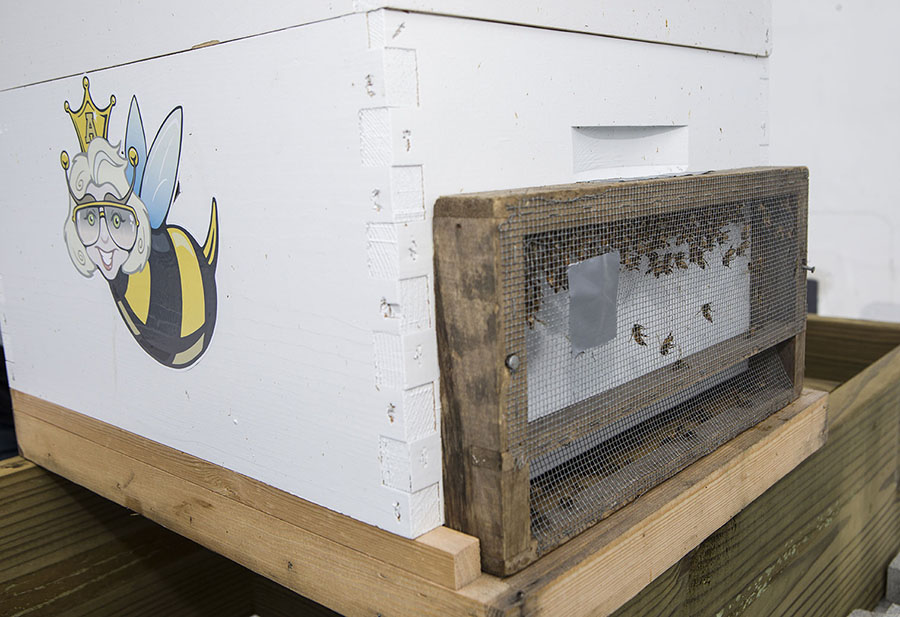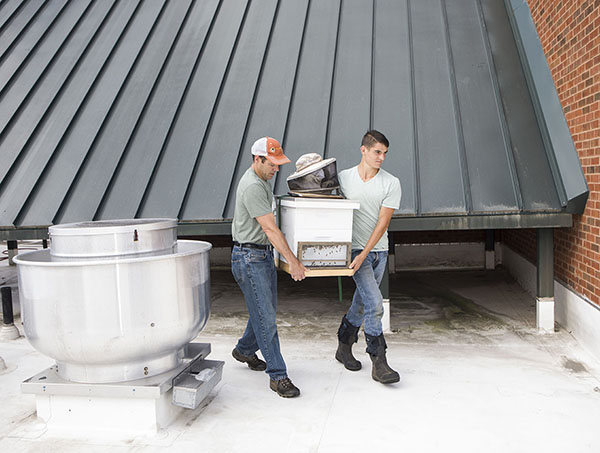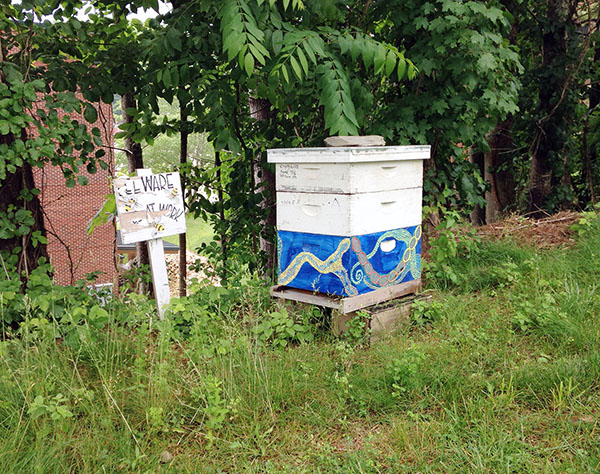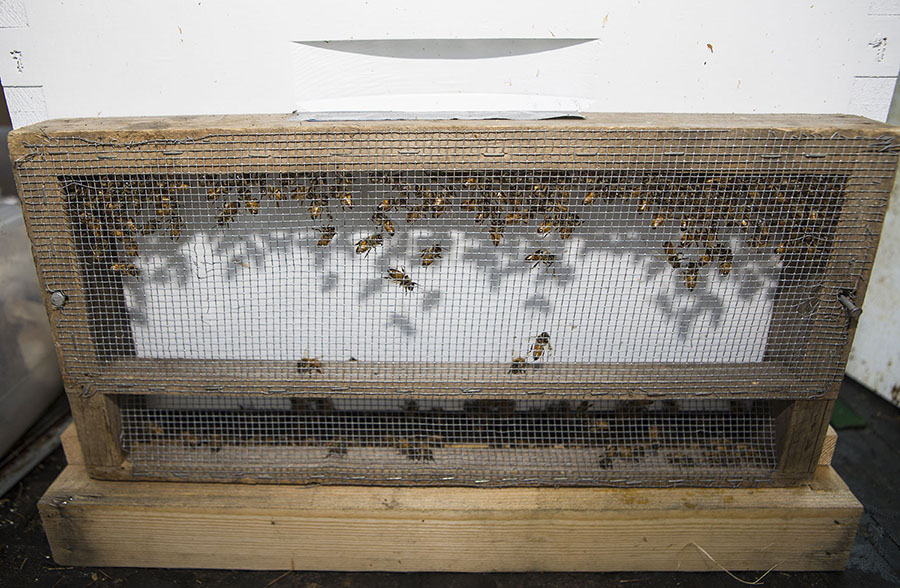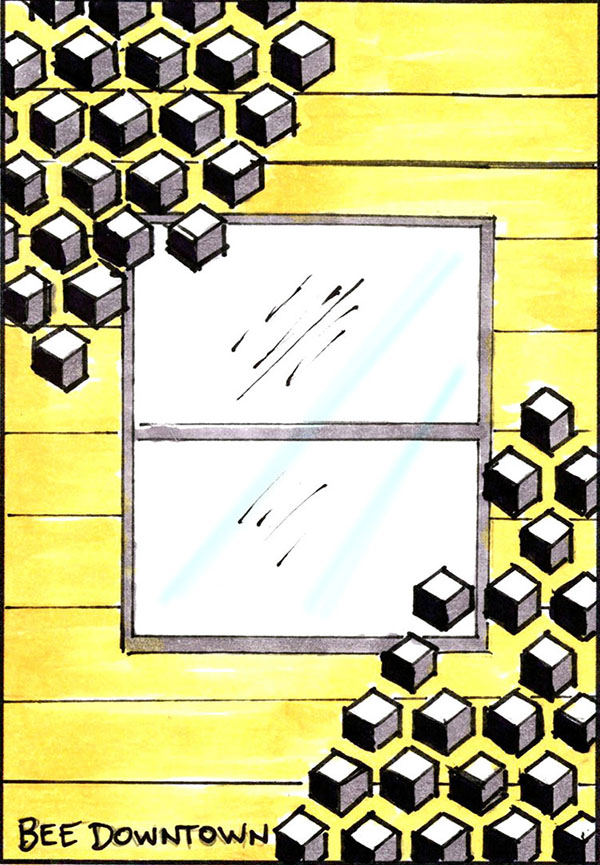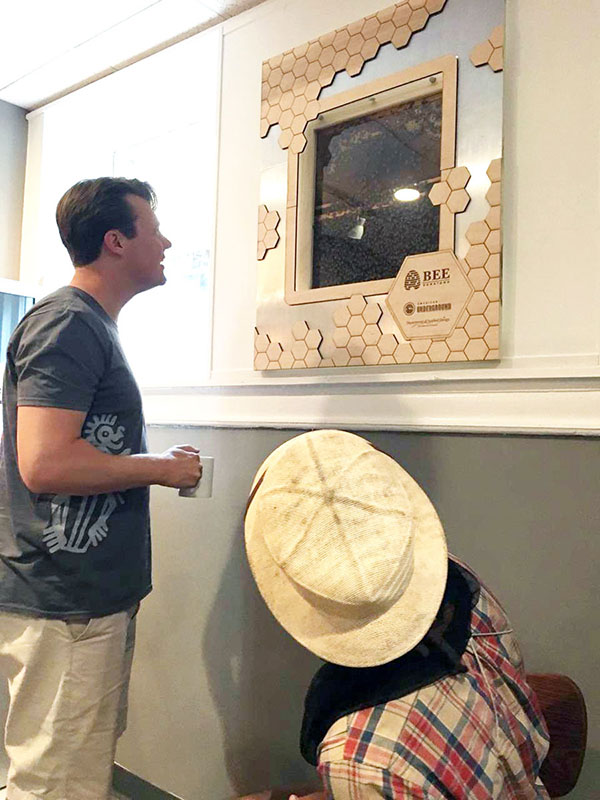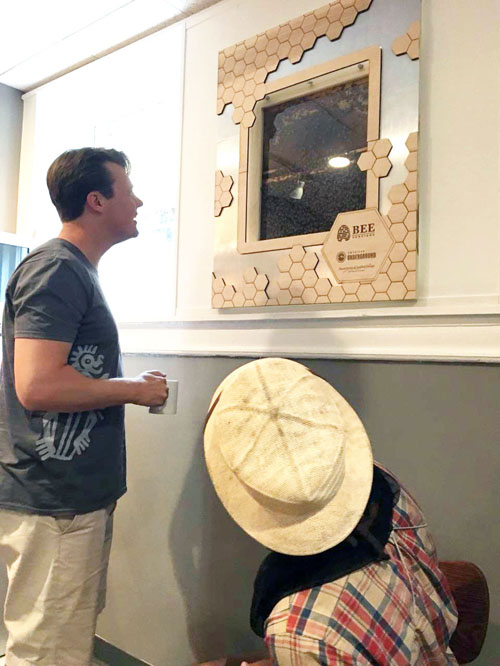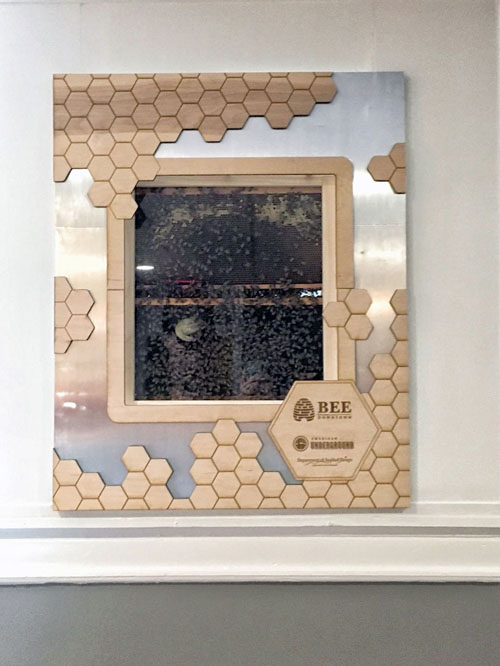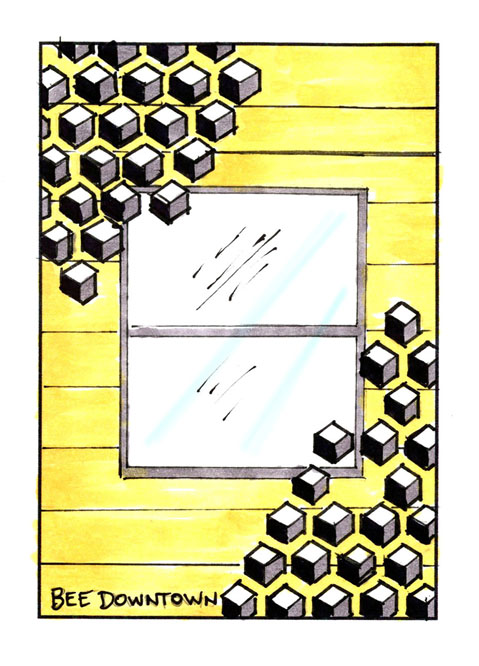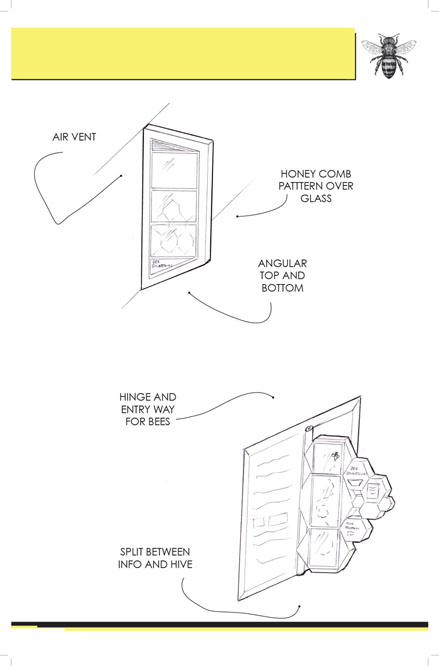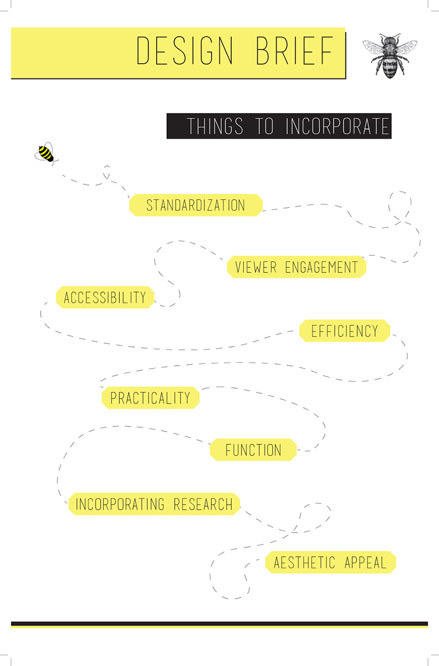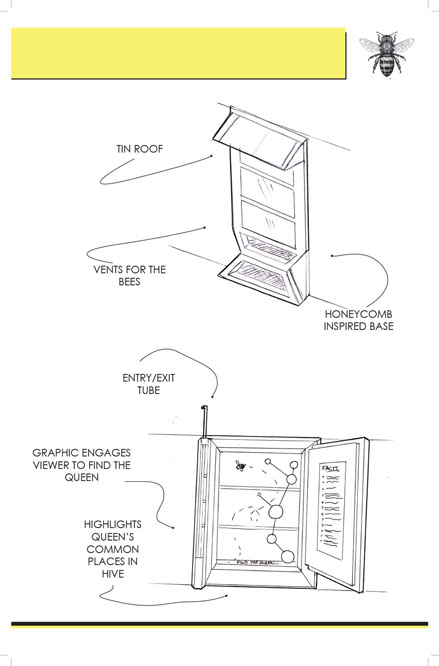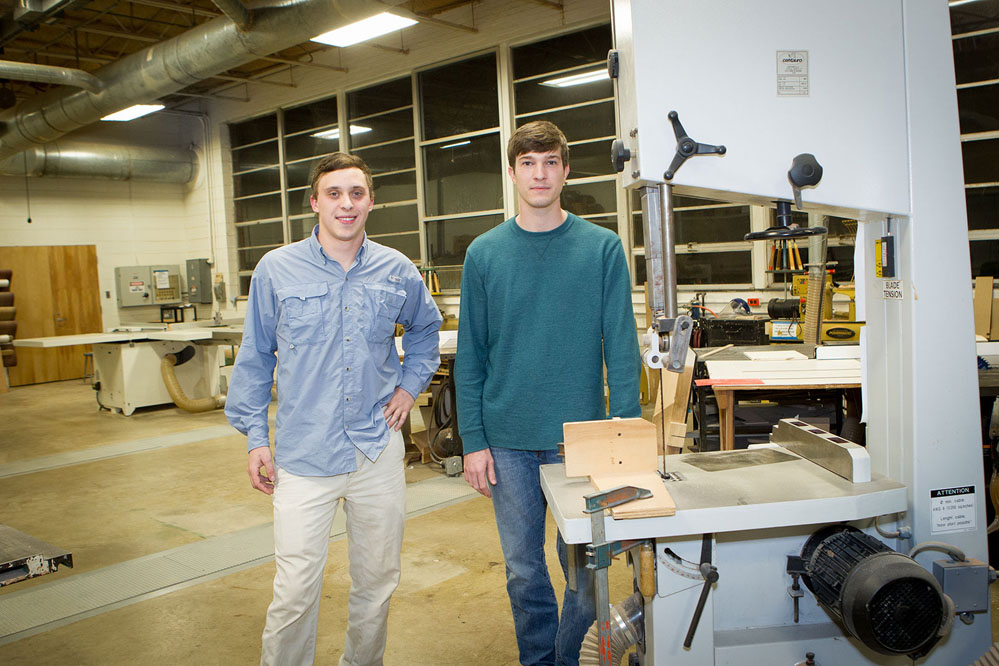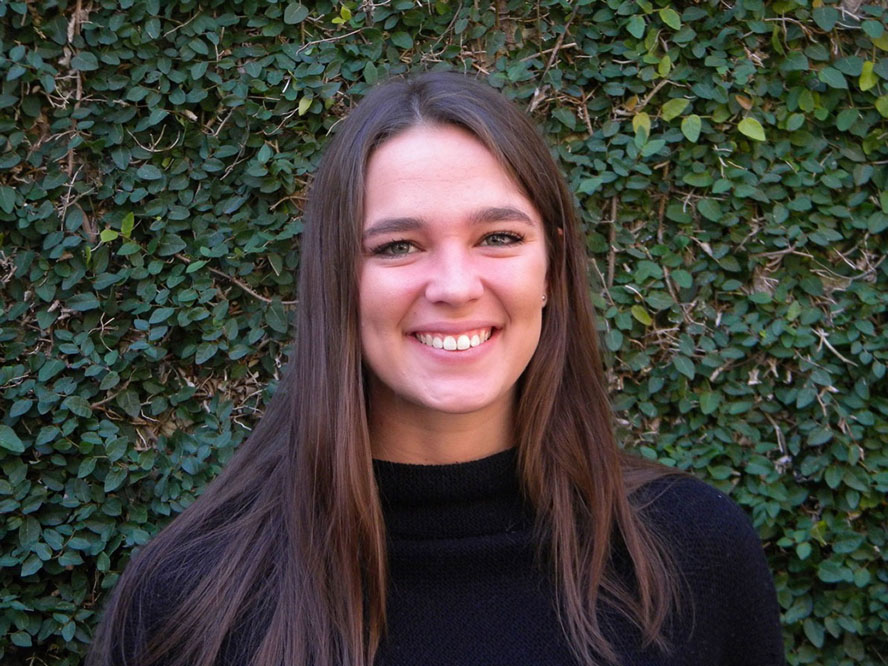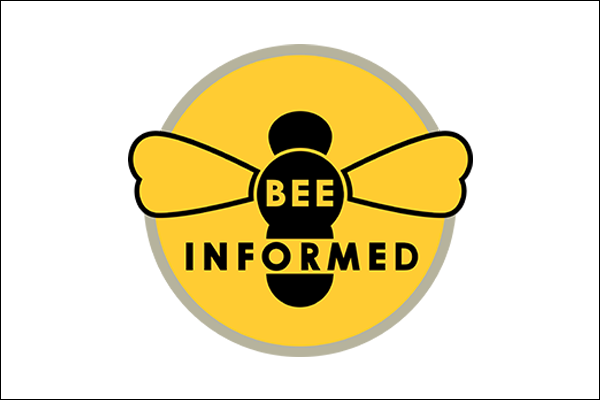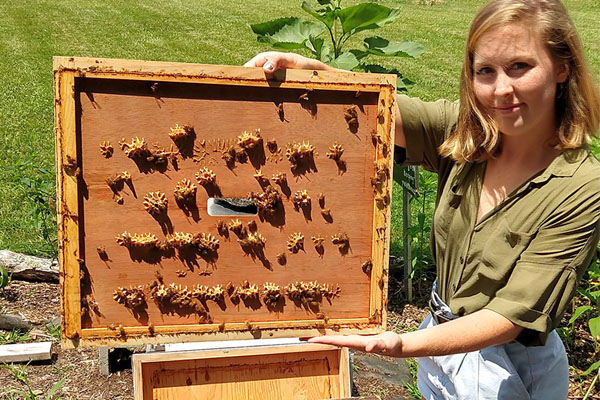BOONE, N.C. — Consider this fact from the U.S. Department of Agriculture: More than $15 billion in U.S. agricultural production depends on the health and well-being of honeybees.
Unfortunately, these essential pollinators have been declining in number for decades, threatening an array of agricultural products – over 130 fruits and vegetables we routinely consume.
At Appalachian State University, students and faculty are developing research and special projects to help the recovery of bee populations and using campus space to promote hive activity. Read about each endeavor:
- Computer science students and faculty use video and audio recordings to monitor beehive health
- Faculty research project will establish platform for consistent, reliable data collection
- Beehives installed at Roess Dining Hall and Living Learning Center
- Industrial design students create observational beehive for North Carolina company
- Bee Informed Partnership generates additional grant projects
Computer science faculty and students use video and audio recordings to monitor beehive health
Computer science provides tools and applications for solving problems, even the decline of honeybees.
For more than five years, Appalachian State University’s Dr. Rahman Tashakkori, Dr. Mitchell Parry and students in Appalachian’s Department of Computer Science have been developing a honeybee monitoring system – called Beemon – to obtain reliable video and audio recordings from the hives to help better understand the behavior of honeybees, estimate their numbers and monitor the growth and health of the hive.
The initial system for research, development and testing has been set up at Tashakkori’s home, and this summer it will be released for testing by other beekeepers.
Students helped write the system’s software programs and analyzed the data. “The Beemon project has produced many research problems and has been able to help us answer many questions. Most importantly, it has involved a large number of undergraduate students,” Tashakkori said.
Tashakkori is the Lowe’s Distinguished Professor of Computer Science at Appalachian. A significant part of the research has been funded by the Lowe’s Distinguished Professor Endowment.
“Two goals of the system are to detect bees visually in order to count them, and to track them over a short period of time in a video sequence to determine whether they are entering or leaving the hive. Since honeybees rarely die inside their hives, a balanced flow of bees is observed entering and leaving a healthy hive,” Tashakkori said.
Bees observed loitering at the entrance of the hive may indicate swarm behavior, and the monitoring system could also note intruders such as beetles, he explained. With the audio recordings, the researchers hope to find a pattern of healthy hive behavior, which can be compared against other hives to determine their health.
“You can imagine how helpful it is to learn about the health of a hive during wintertime, when it is not feasible to open the hive due to extreme cold. One can listen to the bees buzzing inside the hives and determine how healthy they are,” Tashakkori said.
Faculty research project will establish platform for consistent, reliable data collection
Faculty in the College of Arts and Sciences and Walker College of Business are seeking to establish a standardized platform for consistent and reliable data collection from commercial and hobby beekeepers using advanced analysis.
A $240,000 grant from the non-profit organization Project Apis m., which directs research to enhance the health and vitality of honeybee colonies while improving crop production, launched their project last summer.
The project is examining beekeeping economics, best management practices and “genius hive” development. It is led by Dr. Joseph Cazier, director of Appalachian’s Center for Analytics Research and Education (CARE); Dr. James Wilkes ’87, a beekeeper, chair of the Department of Computer Science, and information technology lead for the Bee Informed Partnership; and Dr. Ed Hassler, an assistant professor in the Department of Computer Information Systems and Supply Chain Management.
In the first year of the grant, the researchers used artificial intelligence, under Hassler’s leadership, to read thousands of articles about beekeeping to help identify a data standard. They also worked to determine what type of data they need to collect in order to figure out what helps hives succeed and what doesn’t, Cazier said.
Along the way, they found that 90 percent of beekeepers don’t keep written records of their hives from year to year. Automating record keeping, a key goal of the grant, would make it easier to collect the data needed to help hives succeed, Cazier said.
The eventual goal of the project is to develop a Genius Hive that uses sensors to tell beekeepers what factors are needed to succeed. The hive may let beekeepers know, for example, that it needs more water, said Cazier.
Appalachian’s project was one of 23 research proposals considered by Project Apis m. as part of its Healthy Hives 2020 initiative.
Beehives installed at Roess Dining Hall and Living Learning Center
Two campus sites now host honeybee hives to promote bee populations and raise the Appalachian Community’s awareness of bee health.
In June, a colony of 30,000 honeybees was installed atop Roess Dining Hall in honor of Alice Roess for her eight years of service on the Appalachian Board of Trustees, including the past year as chair. In April, a hive was placed in the gardens of the Living Learning Center, where sustainable development students grow vegetables, fruits and perennial plants.
Both hives were installed by Dr. James Wilkes in the Department of Computer Science, a beekeeper who engages in research to track and analyze beekeeping best management practices. The hives will be maintained by the student beekeeping club, which sustainable development majors Katie Payne and Hallie Graves started about a year ago.
The bees are expected to cover three square miles beyond their hives, pollinating campus and the downtown Boone area. The bees may produce harvestable honey as early as August.
Industrial design students create observational beehive for North Carolina company
Three industrial design majors – Ginny Stern ’15, Cary Cook ’16 and senior Eric Antolic – researched and designed an observational beehive that has become a hit for N.C.-based company Bee Downtown.
Owner Leigh Kathryn Bonner needed some revisions to a window-ledge beehive model before she could replicate it and sell to customers, and the Appalachian students stepped up to challenge.
“I was blown away by the talent the students have,” said Bonner, a fourth-generation beekeeper. “The bees love the hive the students designed – they are healthy and are making honey – and people love the design. Beekeepers are in awe of the functionality of it and visitors love how beautiful it is.”
The students’ design was installed summer 2016 in a common area for employees at American Underground in Durham. It’s still there, and Cook is helping Bee Downtown build more hives for other locations.
The students’ task: make a hive that was modular, captivating and functional. It also had to be transportable to a larger hive in a separate location. None of the students had faced a similar design challenge, plus they had to learn about beekeeping.
They produced dozens of sketches. The finished product allowed people to view the bees’ daily activities inside a glass frame. It had a safety valve to keep the bees inside. It included handles that allowed Bonner and her staff to remove the unit from the window and transport it to its secondary location for care and maintenance of the bees.
“Seeing the excitement of Leigh Kathryn’s reaction was great,” said Antolic, who is from Tallahassee, Florida. “I had the personal satisfaction of creating something tangible. I am glad I got involved… it gave me the confidence to design more and difficult projects.”
“Countless times we’ve been tagged in an Instagram post or Twitter post with a photo or video someone took of the hive to show off to their followers,” Bonner said. “The hive is in the kitchen area of a start-up hub and we’ve had multiple people come up to us and tell us eating their lunch next to the bees is their favorite part of their day.”
Bee Informed Partnership generates additional grant projects
Initially funded through a five-year grant from the U.S. Department of Agriculture, the Bee Informed Partnership is a multi-university research team that includes Appalachian’s Dr. James Wilkes. The partnership’s original work has led to three new funded grants to continue bee research and technology development, plus the formation of the non-profit Bee Informed Partnership Inc. in 2014.
The Bee Informed Partnership works with beekeepers to better understand which management practices work best, according to its website. The partnership gathers survey data from thousands of beekeepers every season to understand how different management practices affect the bees’ health and reports findings back to the industry. Wilkes serves on the non-profit’s board of directors.
Wilkes’ on-going grant work funded by the USDA includes:
- developing software and participating in a $4 million grant in which results from the original grant are being implemented and tested through field trials;
- overseeing software development of a tool for beekeepers to evaluate their management practices compared to current best management practices;
- assist in developing a mobile app for data collection; and
- integrating a hive monitoring data collection platform into a unified honeybee health database platform.
University Communications’ Kesha Williams, Mary Giunca and Troy Tuttle contributed to these reports.
Three Appalachian State University industrial design majors – Ginny Stern ’15, Cary Cook ’16 and senior Eric Antolic – researched and designed an observational beehive that has become a hit for N.C.-based company Bee Downtown.
What do you think?
Share your feedback on this story.
The local community is invited to view and submit observations of the Department of Computer Science’s Beemon system
Appalachian named one of nation’s 61 Bee Campuses
About the Department of Computer Science
Appalachian’s Department of Computer Science provides a rigorous, high-quality education that prepares students for the computing industry or graduate education. It offers a Bachelor of Science degree in computer science, which is accredited by the Computing Accreditation Commission of ABET, and a Master of Science degree in computer science. Learn more at https://compsci.appstate.edu.
About the Center for Analytics Research and Education (CARE)
The Center for Analytics Research and Education is housed within the Walker College of Business at Appalachian State University. The mission of CARE is to engage and utilize the knowledge of students, faculty and staff to help promote prosocial behavioral change within organizations and society. Specifically, CARE uses big data and analytics for research in sustainability, education, economic development, human resources science, and health and wellness. Learn more at https://care.appstate.edu.
About the College of Arts and Sciences
The College of Arts and Sciences (CAS) at Appalachian State University is home to 17 academic departments, two centers and one residential college. These units span the humanities and the social, mathematical and natural sciences. CAS aims to develop a distinctive identity built upon our university's strengths, traditions and locations. The college’s values lie not only in service to the university and local community, but through inspiring, training, educating and sustaining the development of its students as global citizens. More than 6,800 student majors are enrolled in the college. As the college is also largely responsible for implementing App State’s general education curriculum, it is heavily involved in the education of all students at the university, including those pursuing majors in other colleges. Learn more at https://cas.appstate.edu.
About Appalachian State University
As a premier public institution, Appalachian State University prepares students to lead purposeful lives. App State is one of 17 campuses in the University of North Carolina System, with a national reputation for innovative teaching and opening access to a high-quality, cost-effective education. The university enrolls more than 21,000 students, has a low student-to-faculty ratio and offers more than 150 undergraduate and 80 graduate majors at its Boone and Hickory campuses and through App State Online. Learn more at https://www.appstate.edu.

